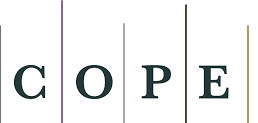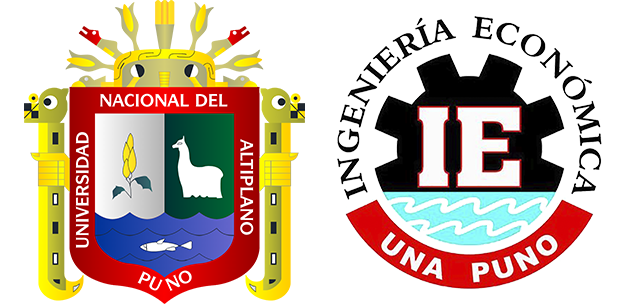Formative research in frame with the SDG-4 of the 2030 Agenda at Ixtapaluca Institute of Technological Studies
DOI:
https://doi.org/10.26867/se.2024.v14i1.185Keywords:
Formative research, quality educationEliminar quality education, system, TESIAbstract
Technological innovations direct to international education, referred to in the 2030 plan in the third sustainable development goal: quality education. In this work, it excels the concept of formative research that has three axes: teaching, researching, and society during the university level because it develops in the learner’s abilities of interpreting, analysis, and synthesis. The objective in the present work was to analyze the educative research in the Ixtapaluca Institute of Technological Studies (TESI) and to determine if it corresponds to an administrative process with the general theory of systems as methodology. The results show that the TESI realizes the three phases of a system: entrance, process, and exit, and also gives constant feedback as needed. Accepting that in the TESI the entrants are the new entry students, the process has three curricular matters and the residency project. The exit is the student with elements to use them in society in the work field. The conclusion was that the TESI student gets basic elements of research in his major. The recommendation is to emphasize the formative process as a student researcher and to do more promotion of the residency process to increase the number of students in it.
Metrics
References
(s.f.). Obtenido de http://ordenjuridico.gob.mx/Documentos/Estatal/Estado%20de%20Mexico/wo30250.pdf
Borrero, C. A. (2008). La Universidad Estudios sobre sus orígenes, estudios y tendencias. Bogotá, Colombia: Compañía de Jesús Pontificia Universidad Javeriana.
Chiavenato, I. (2004). Introducción a la Teoría General de la Administración. CDMX: Mc Graw Hill.
Gobierno de México. (2020). Data México. Obtenido de https://www.economia.gob.mx/datamexico/es/profile/institution/tecnologico-de-estudios-superiores-de-ixtapaluca?redirect=true#:~:text=En%202022%2C%20Tecnol%C3%B3gico%20De%20Estudios%20Superiores%20De%20Ixtapaluca,de%20estos%2082%20fueron%20hombres%20y%2088
Grupo Banco Mundial. (2018). Informe sobre el Desarrollo Mundial. Obtenido de https://openknowledge.worldbank.org/server/api/core/bitstreams/0ddd65d5-acd9-5267-9de3-1a178482dd1e/content
Guerra, M. (2017). ¿Formación para la investigación o investigación formativa? La investigación y la formación como pilar común de desarrollo. Boletin virtual, 6(1), 84-89. Obtenido de https://revista.redipe.org/index.php/1/article/view/180/177
Guerrero, M. (2007). Formación de habilidades para la investigación desde el pregrado. Acta Colombiana de Psicología, 10(2), 190-192. Obtenido de http://www.scielo.org.co/pdf/acp/v10n2/v10n2a18.pdf
Junta Directiva del Tecnológico de Estudios Superiores de Ixtapaluca. (24 de febrero de 2006). Reglamento de residencias profesionales. Obtenido de http://ordenjuridico.gob.mx/Documentos/Estatal/Estado%20de%20Mexico/wo30250.pdf
Junta Directiva del Tecnológico de Estudios Superiores de Ixtapaluca. (24 de febrero de 2006). Reglamento de Residencias Profesionales. Obtenido de http://ordenjuridico.gob.mx/Documentos/Estatal/Estado%20de%20Mexico/wo30250.pdf
Luhmann, N. (2014). Nicklas Luhmann: Organización y decisión. Obtenido de https://www.academia.edu/16772103/Niklas_Luhmann_Organizaci%C3%B3n_y_decisi%C3%B3n
Manrique, V. L., Valle, T. A., Revilla, F. A., & Revilla, F. D. (Mayo de 2020). La investigación formativa y la práctica reflexiva en la formación de profesores de la facultad de educación. Obtenido de https://repositorio.pucp.edu.pe/index/bitstream/handle/123456789/184560/GU%c3%8dA-LA-INVESTIGACI%c3%93N-FORMATIVA-Y-LA-PR%c3%81CTICA-REFLEXIVA.pdf?sequence=1
May-Alvaro, S. H.-C. (2021). Indicadores administrativos usados para medir la efectividad de un sistema de información administrativo. Digital Publisher, 194 - 206.
Münch, L. (2018). Administración Gestión organizacional, enfoques y proceso administrativo. CDMX: Pearson.
Organización de las Naciones Unidas (ONU). (10 de Marzo de 2016). La agenda 2030 de las personas, para las personas. Obtenido de https://www.onu.org.mx/la-agenda-2030-de-las-personas-para-las-personas/: https://www.onu.org.mx/la-agenda-2030-de-las-personas-para-las-personas/
Organización de las Naciones Unidas (ONU) MÉXICO. (2016). Agenda 2030. Obtenido de https://www.onu.org.mx/agenda-2030/
Organización de las Naciones Unidas para la Educación, la Ciencia y la Cultura (UNESCO). (1999). World Conferencie on science for the Twenty First Century, a New Commitment. Obtenido de http://www.unesco.org/science/wcs/eng/overview.htm#:~:text=In%20convening%20a%20World%20Conference,with%20other%20partners%2C%20provided%20a
Organización de las Naciones Unidas, p. l. (9 de Marzo de 2008). Declaración Mundial Sobre la Educación Superior en el Siglo XXI: Visión y Acción. Obtenido de https://www.monografias.com/trabajos-pdf/educacion-superior-accion-cambio-desarrollo/educacion-superior-accion-cambio-desarrollo.pdf
Orozco, V. M. (2016). La investigación como estrategia formativa. Investigaciones Andina, 1-7.
Parra, C. (2004). Apuntes sobre la investigación formativa. Educación y educadores(7), 57-77. Obtenido de https://www.redalyc.org/pdf/834/83400707.pdf
Restrepo, G. B. (2003). Investigación formativa e investigación productiva de conocimeinto en la universidad. Nómadas, 125-202.
Salguero, R. J. (2022). Aproximaciones teóricas y metodológicas para la gestión de la investigación formativa. Revista Scielo.
Schvarstein, L. (08 de Febrero de 2001). Psicología Social de las Organizaciones. Obtenido de https://www.academia.edu/32868063/PSICOLOGIA_SOCIAL_DE_LAS_ORGANIZACIONES_AUTOR_LEONARDO_SCHVARSTEIN
Turpo-Gebera, O. M.-M. (2020). La investigación formativa en la universidad: sentidos asignados por el profesorado de una facultad de educación. Educ. Pesqui., Sao Pablo, 1-19.
UNESCO. (2019). Educación y Formación Tecnica y Profesional. Obtenido de Centro Internacional para la Educación y Formación Técnica y Profesional. (UNESCO-UNEVOC): https://siteal.iiep.unesco.org/sites/default/files/sit_informe_pdfs/siteal_educacion_y_formacion_tecnica_profesional_20190607.pdf
Universia. (13 de febrero de 2024). Tecnológico de Estudios Superiores de Ixtapaluca. Obtenido de https://www.universia.net/mx/universidades/tecnologico-estudios-superiores-ixtapaluca.01276.html
Velásquez, C. A. (2007). La organización, el sistema y su dinámica: una versión desde Niklas Luhmann. Revista Escuela de Administración de Negocios, 129-155. Obtenido de https://www.redalyc.org/pdf/206/20611495014.pdf#:~:text=La%20organizaci%C3%B3n%20es%20un%20sistema%20de%20roles%20y,de%20atributos%20necesarios%20para%20actuar%20en%20un%20entorno.















